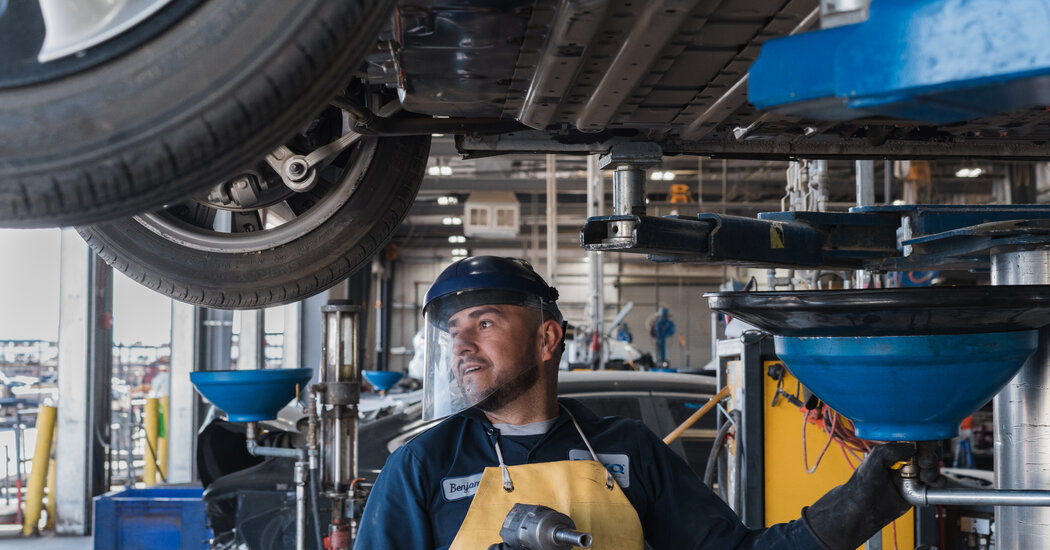“We’re weaning our entire society from fossil and carbon-intensive fuels — we can’t underestimate the magnitude of that challenge,” said Gavin Harper, a research associate at the University of Birmingham in England who studies battery recycling. “Demand will be so huge.”
Race to the future
The Times examines the global transition away from oil and the scramble for resources that will power the clean energy economy.
But for all the optimism, this new company faces a huge challenge: Few batteries will be available to recycle for the next decade or more. Tesla, which dominates the electric vehicle market, started selling cars in 2008 and sold fewer than 100,000 cars a year until 2017. There are other sources to recycle today, including hybrids and consumer electronics, but supply is limited and collection can be challenging.
This has put recycling companies in a difficult position. They have to invest in factories, machines and workers, otherwise they risk losing ground to competitors. But if they invest too quickly, they could run out of money before many aging batteries arrive at their loading docks.
“You have people who just spend money because you don’t have the raw material to sell the material,” said Eric Frederickson, the general manager of Call2Recycle, a nonprofit program that helps recyclers find old batteries.
The companies also have to figure out how to find, collect and dismantle batteries. They have to work with many wreckers, wreckers and non-profit organizations. And because batteries are prone to fire and are packaged and constructed differently from model to model, disassembling them can be complicated and dangerous.
Of the battery recycling companies, Redwood stands out. The company was founded by JB Straubel, a former Tesla executive, and has raised more than $1 billion from investors, the company said. Redwood sees itself primarily as a producer of battery materials – made from recovered or extracted metals – and has established recycling partnerships with Ford Motor, Toyota, Volkswagen and Volvo. Redwood also recycles scrap from a Panasonic and Tesla battery plant near Reno, Nev.
On a flat, dusty piece of land near that factory, Redwood is building a 175-acre campus. There the company recovers metal from old batteries and produces materials for new ones. Redwood announced last week that it would spend at least $3.5 billion on another campus in South Carolina, in a region of the country fast becoming a hub for battery and electric vehicle manufacturing.

